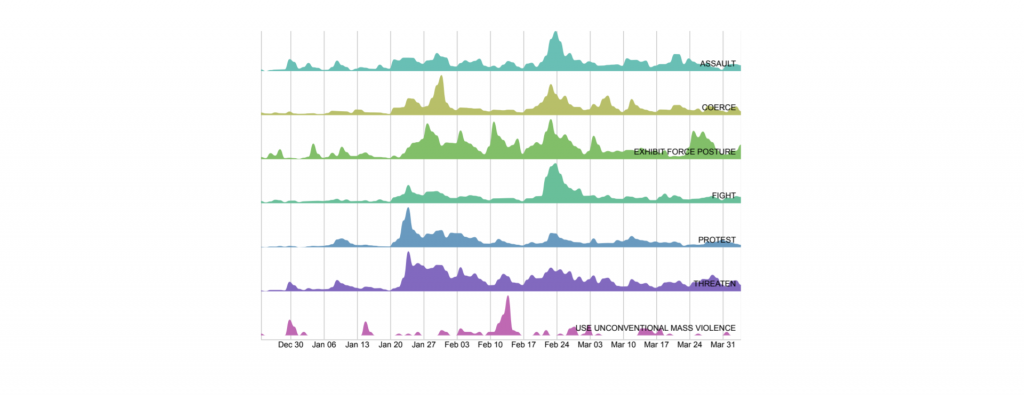This paper by researchers at the University of South Florida being presented at WebSci ’21: The 13th International ACM Conference on Web Science on June 21–25, 2021 in Southampton, UK, uses GDELT to assess news coverage of major events in the Venezuelan crisis:
Social media activity is driven by real-world events (natural disasters, political unrest, etc.) and by processes within the platform itself (viral content, posts by influentials, etc). Understanding how these different factors affect social media conversations in polarized communities has practical implications, from identifying polarizing users to designing content promotion algorithms that alleviate polarization. Based on two datasets that record real-world events (ACLED and GDELT), we investigate how exogenous events drive related Twitter activity in the highly polarizing context of the Venezuela’s political crisis from early 2019. Our findings show that users who tweet in different languages show different emotions and reactions to events; antagonistic communities react differently to different exogenous sources; influential users not only have an impact on the structure of the communities but also on polarization; and different events lead to different changes in network polarization.
